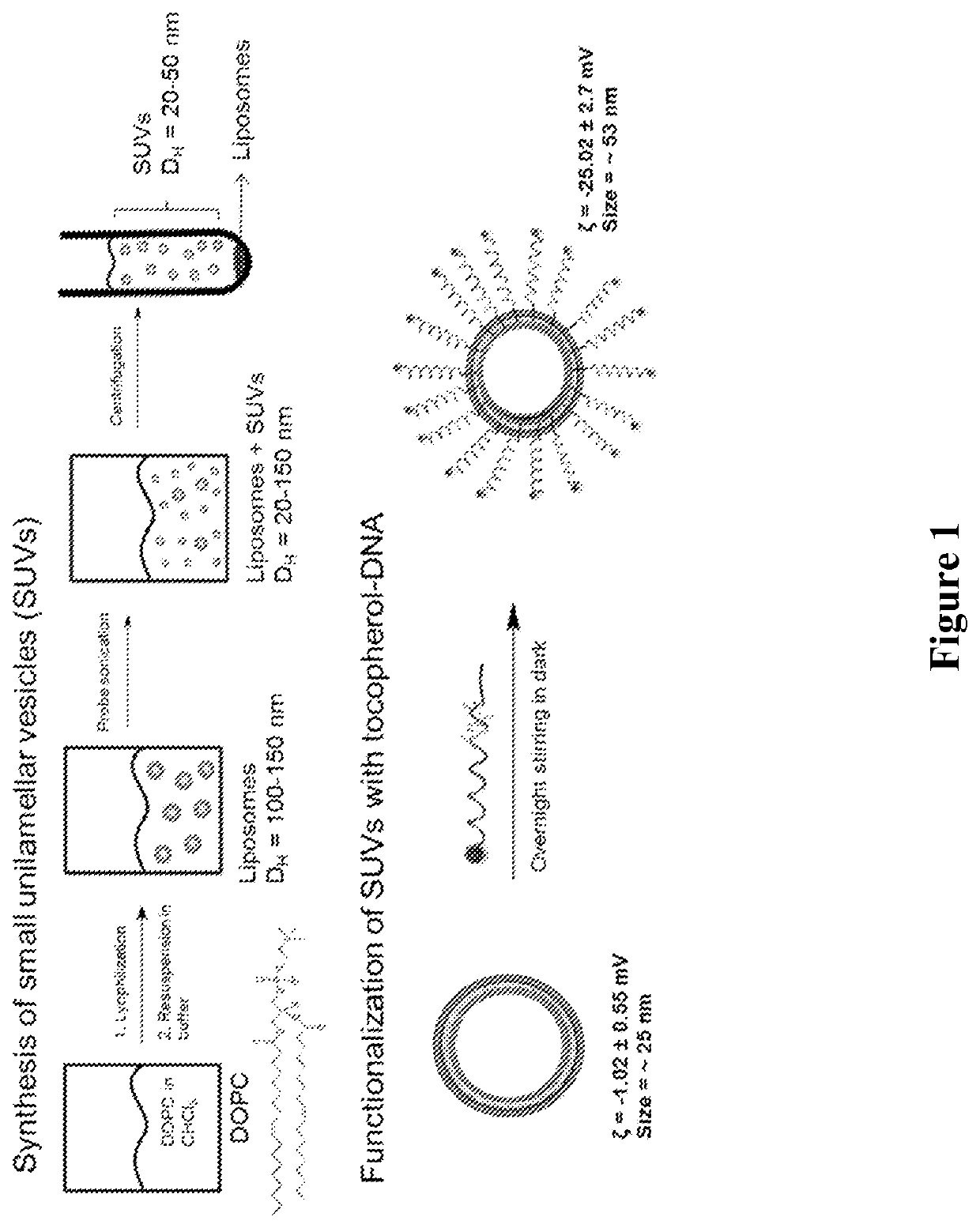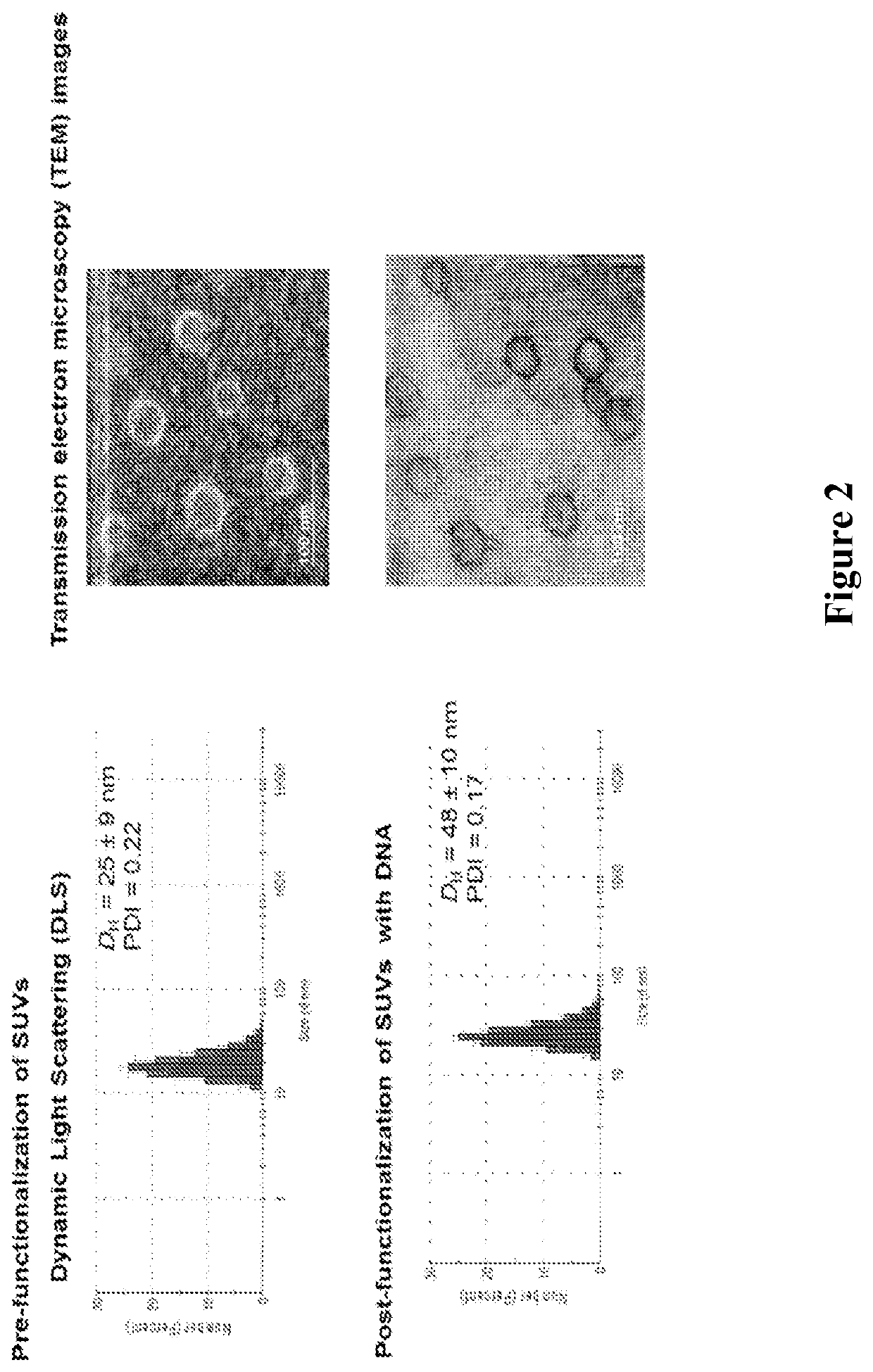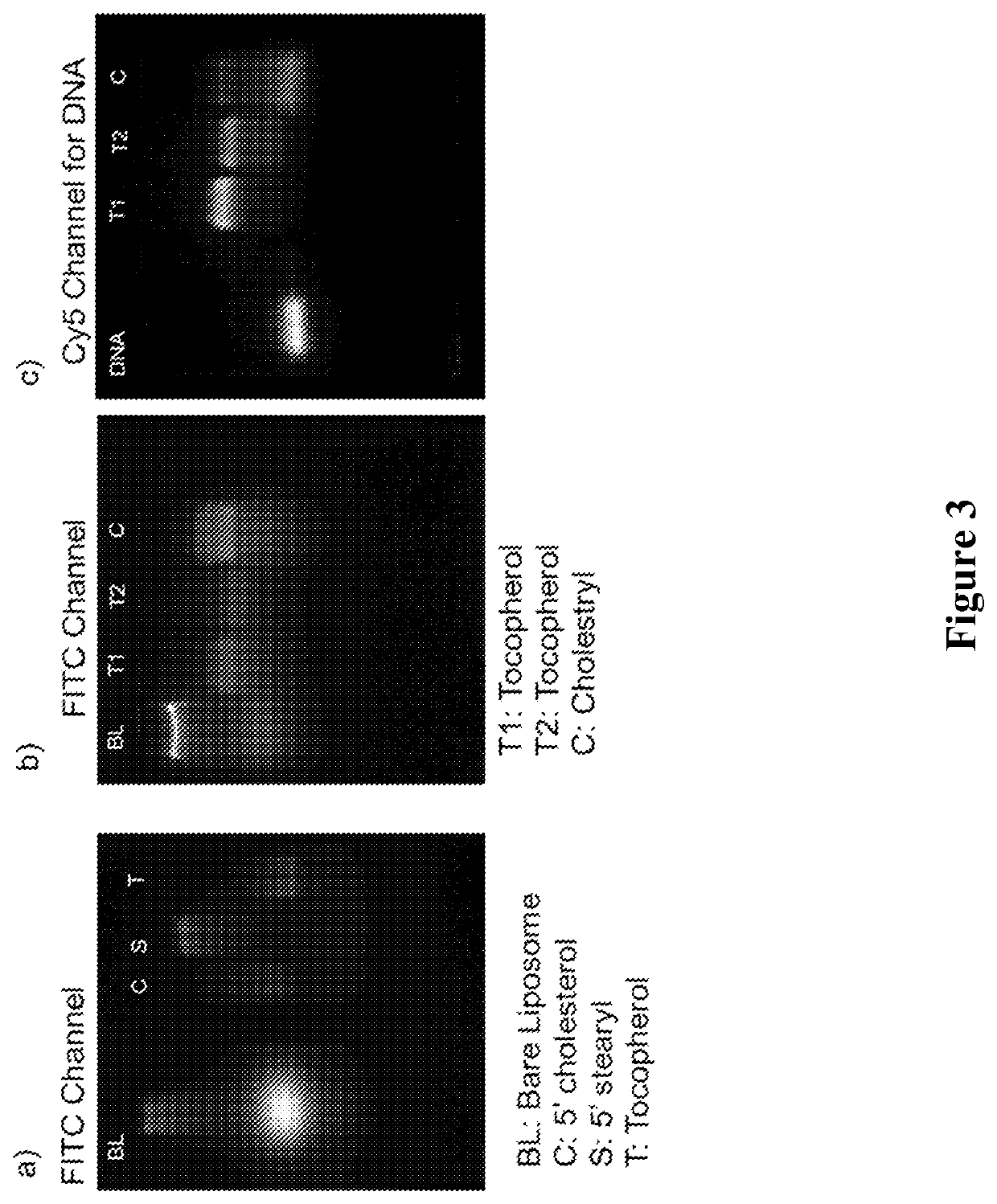Liposomal particles, methods of making same and uses thereof
a technology of liposomal particles and methods, applied in the field of liposomal particles, methods of making the same, can solve the problems of inter-particle fusion, limited use of suvs in therapeutics, and structures created by this method are not stable at a size smaller than 80 nanometers (nm)
- Summary
- Abstract
- Description
- Claims
- Application Information
AI Technical Summary
Benefits of technology
Problems solved by technology
Method used
Image
Examples
example 1
[0129]All reagents were obtained from the suppliers in highest purity and used without any further purification. HPLC was performed on a Varian Prostar system. UV / Vis was recorded on a Varian Cary 300 spectrophotometer. Fluorescence spectra were obtained on a SPEX FluoroLog fluorometer.
example 2
of Oligonucleotides
[0130]Oligonucleotides were synthesized in 1.0 micromolar scale on an automated DNA synthesizer (ABI 3400, Applied Biosystems, Inc.). After cleavage and deprotection with aqueous ammonium hydroxide (55° C., 14 h), the DNA was purified by reverse-phase HPLC and quantified by UV spectrometer.
example 3
of Liposomal Particles
[0131]The lipid monomer (40 μmol of 1,2-dioleoyl-sn-glycero-3-phosphocholine(DOPC) dissolved in chloroform) was added to a 20 mL vial and then evaporated before overnight lyophilization to remove the solvent resulting in a thin lipid film. The film was then rehydrated with HBS buffer (5.0 mL, 20 mM Hepes buffer, 150 mM NaCl at pH 7.4) followed by vigorous mixing to form a liposomal suspension and was then probe-sonicated in an ice bath for 30 min without pulsating. The resulting suspension was then ultracentrifuged at 104,986 g and 4° C. for 90 min. The phospholipid concentration was calculated using elemental analysis.
[0132]Next, the DNA / RNA strands were synthesized with the α-tocopherol modification via standard solid-phase phosphoramidite chemistry on an Expedite Nucleotide Synthesis System. The strands were cleaved from the solid support and purified by reverse-phase high performance liquid chromatography.
[0133]Lastly, the appropriate DNA / RNA (16 μM) was ad...
PUM
 Login to View More
Login to View More Abstract
Description
Claims
Application Information
 Login to View More
Login to View More - R&D
- Intellectual Property
- Life Sciences
- Materials
- Tech Scout
- Unparalleled Data Quality
- Higher Quality Content
- 60% Fewer Hallucinations
Browse by: Latest US Patents, China's latest patents, Technical Efficacy Thesaurus, Application Domain, Technology Topic, Popular Technical Reports.
© 2025 PatSnap. All rights reserved.Legal|Privacy policy|Modern Slavery Act Transparency Statement|Sitemap|About US| Contact US: help@patsnap.com



